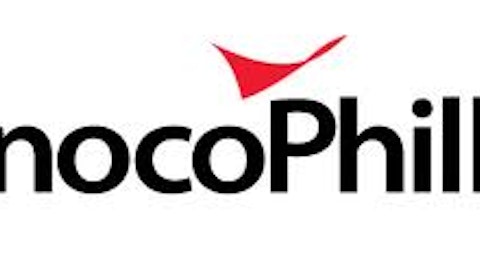
Keystone
The Keystone pipeline is intended to bring oil from Canada’s oil sands region down through the United States to the U.S. Gulf Coast. There it would be used as feedstock for refineries and reduce the country’s dependance on Middle Eastern oil.
That sounds like a winning proposition, but there have been debates about everything from how many jobs it will create to how safe it is to let the pipeline cross over important watersheds. Environmental issues have been the biggest sticking point, with approval now bogged down in politics.
Safety is a clear concern, and it’s an area on which Keystone could have a lasting impact for the entire pipeline industry. For example, Bloomberg reports that TransCanada Corporation (USA) (NYSE:TRP) is being asked to put in writing that it will pay for the damage from any oil spills.
If that’s not enough to put a scare into a pipeline company, consider the fact that Joe Oliver, the Canadian minister of natural resources, told the Bloomberg New Energy Finance Summit that “the new pipe itself would have 57 more safety features than are found in the hundreds of thousands of miles of pipelines already crisscrossing the U.S.”
Pipeline companies, then, could see increased safety regulations because of the contentious battle over Keystone. That risk will be there even if the pipeline never gets built.
How to Play
Investors who see and rightly fear the risk that Keystone will lead to increased industry regulation should probably stick to the companies most capable of affording such changes.
A Giant without a Partner
Enterprise Products Partners L.P. (NYSE:EPD) is one of the largest limited partnerships (LPs) in the pipeline space. Its operations span the country and just about every aspect of the midstream space. It has been a reliable dividend grower and its business has expanded rapidly.
Well financed, it could easily afford the impact of new regulation. Of course its size means that it would face massive changes, but those costs would likely be passed on to customers relatively quickly.
One nice feature about Enterprise Products Partners L.P. (NYSE:EPD) is that it doesn’t have a general partner (GP). Thus, the incentive distributions that other companies in the LP space pay to their GPs get put toward growth and/or unit holder distributions.
That said, this LP is an industry leader and is afforded a premium price. Conservative investors willing to trade yield for safety might find Enterprise of interest.
Complex Structure Discount
Kinder Morgan Energy Partners LP (NYSE:KMP) is every bit as impressive as Enterprise, but normally trades at a discount. That’s because Kinder still has a GP. It also has a share class that pays stock dividends instead of cash dividends. Basically, the business structure is much more complex than that of Enterprise.
It is, however, large and well financed. So, if there are any negative industry implications from the Keystone project, Kinder Morgan Energy Partners LP (NYSE:KMP) in all of its forms will be able to handle the changes. The complexity, meanwhile, leaves investors with a chance to get a little more yield than they would with Enterprise.
For income investors, its worth the extra effort to get to know Kinder. For those who want exposure to an LP in an tax advantaged account, like an IRA, meanwhile, Kinder Morgan Energy Partners LP (NYSE:KMP)’s stock dividend share class (KMR) is the ideal option. Cash distributions from LPs don’t play well with tax sheltered accounts.


